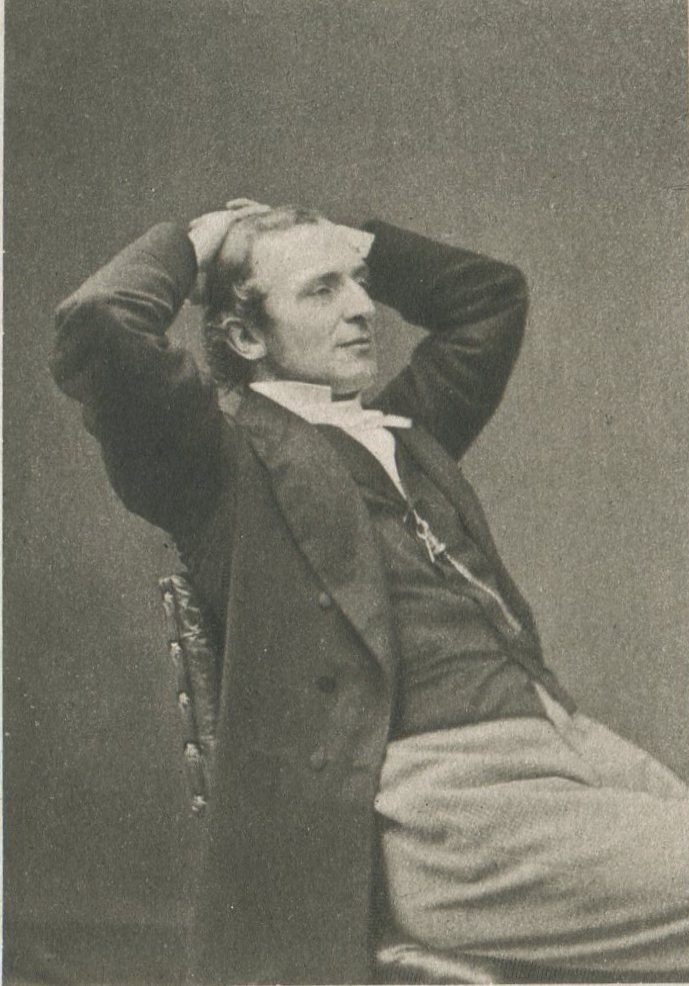Queer Places:
Eton College, Windsor SL4 6DW, Regno Unito
University Of Cambridge, Cambridge CB2, Regno Unito
Halsdon House, Halsdon Farm, Dolton, Winkleigh EX19 8RF, Regno Unito
8 Pilgrim's Ln, Hampstead, London NW3, Regno Unito
 William Johnson Cory (9 January 1823 – 11 June 1892), born William Johnson,
was an English educator and poet. He was a
Cambridge Apostles. He was dismissed from his post at Eton for
encouraging a culture of intimacy, possibly innocent, between teachers and
pupils. He is widely known for his English version of the elegy Heraclitus
by Callimachus. Heraclitus (1858), Preparation (1858) and Parting (1858) are cited as examples in Sexual Heretics:
Male Homosexuality in English Literature from 1850-1900, by Brian Reade.
William Johnson Cory (9 January 1823 – 11 June 1892), born William Johnson,
was an English educator and poet. He was a
Cambridge Apostles. He was dismissed from his post at Eton for
encouraging a culture of intimacy, possibly innocent, between teachers and
pupils. He is widely known for his English version of the elegy Heraclitus
by Callimachus. Heraclitus (1858), Preparation (1858) and Parting (1858) are cited as examples in Sexual Heretics:
Male Homosexuality in English Literature from 1850-1900, by Brian Reade.
He was born at Great Torrington, and educated at Eton, where he was
afterwards a renowned master, nicknamed "Tute" (short for "tutor") by his
pupils. After Eton, where he won the Newcastle Scholarship,[1]
he studied at King's College, Cambridge, where he won the Chancellor's Medal
for an English poem on Plato in 1843, and the Craven Scholarship in 1844.[2]
He was a writer of Latin verse as well as English verse. Although best known
for the much-anthologised "Heraclitus", an adaptation of an elegy by
Callimachus, ("They told me Heraclitus, they told me you were dead"[3]),
his chief poetical work is the collection Ionica.[groupname
1]
Cory became an assistant master at Eton in 1845 just after graduating from
King's. He insisted on the centrality of personal ties between teacher and
student. The historian G. W. Prothero described him as "the most brilliant
Eton tutor of his day". Arthur Coleridge described him as "the wisest master
who has ever been at Eton". Among his former pupils are numbered several
statesmen of the period, including Lord Rosebery, Captain Algernon Drummond,
Henry Scott Holland,
Howard Overing Sturgis, Charles Wood, 2nd Viscount Halifax and Arthur
Balfour.
Johnson was forced to resign from Eton at Easter 1872 after an "indiscreet
letter" that he had written to a pupil,
Charlie
Wood, was intercepted by the boy's parents
and brought to the notice of the headmaster.[4]
Although it has been suggested that Johnson was a devoted pederast who
numbered among his paramours
Reginald Brett, the future Lord Esher,[5]
the Dictionary of National Biography maintains that this cannot be
proved and that "No one can be quite sure of the exact circumstances of his
resignation," adding: "There is no question, however, that he was dangerously
fond of a number of boys. Although he probably did not allow his affections to
take any physical form, he permitted intimacies between the boys. This conduct
was brought to the notice of the headmaster, James Hornby, who demanded
Johnson's resignation."[6]
In dismissing Johnson, Hornby commented that it was not for committing acts of
“immorality in the ordinary sense of the word”,[7]
meaning sodomy in the euphemism of an era when passionate relationships
between men and boys were justly encouraged, and an alternative view of
Johnson's dismissal is given by William C. Lubenow, who posits that Hornby
"turfed out William Johnson and
Oscar Browning
because they were liberal reformers in a highly authoritarian institution ...
[they] attempted to create a community where power and personality, desire and
discipline, and love and learning were integrated. They committed the crime of
Socrates: they corrupted youth by creating a world of multiple loyalties."[8]
Johnson retired to Halsdon and changed his name on 17 October 1872 to Cory
(the maiden name of his paternal grandmother) before emigrating for health
reasons to Madeira in February 1878, where he married and had a son. He
returned to England in September 1882, settling in Hampstead, where he died on
11 June 1892. He was buried at Hampstead on 16 June.[9]
My published books:


BACK TO HOME PAGE

- https://en.wikipedia.org/wiki/William_Johnson_Cory
- Sexual Heretics: Male Homosexuality in English Literature from
1850-1900, by Brian Reade
 William Johnson Cory (9 January 1823 – 11 June 1892), born William Johnson,
was an English educator and poet. He was a
Cambridge Apostles. He was dismissed from his post at Eton for
encouraging a culture of intimacy, possibly innocent, between teachers and
pupils. He is widely known for his English version of the elegy Heraclitus
by Callimachus. Heraclitus (1858), Preparation (1858) and Parting (1858) are cited as examples in Sexual Heretics:
Male Homosexuality in English Literature from 1850-1900, by Brian Reade.
William Johnson Cory (9 January 1823 – 11 June 1892), born William Johnson,
was an English educator and poet. He was a
Cambridge Apostles. He was dismissed from his post at Eton for
encouraging a culture of intimacy, possibly innocent, between teachers and
pupils. He is widely known for his English version of the elegy Heraclitus
by Callimachus. Heraclitus (1858), Preparation (1858) and Parting (1858) are cited as examples in Sexual Heretics:
Male Homosexuality in English Literature from 1850-1900, by Brian Reade.
